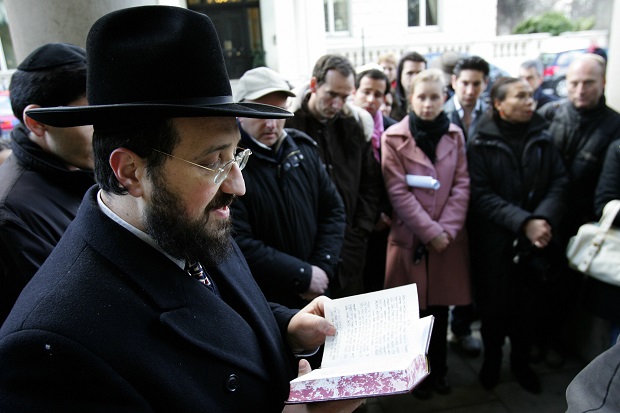As silly seasons go, this August has been pretty rubbish, I have to say. Iraq heads the list of gloomy subjects, obviously, as 100,000 Christians and many more Yazidis flee from the genocidal maniacs of the Islamic State. And before anyone asks, yes I do support intervention there: this is not like other conflicts in the region, between two heavily-armed militias both hostile to the West, as in Syria; it is an unprovoked attacked by our enemies against defenceless civilians simply because of their religion, the very thing the post-1945 order was supposed to prevent.
Gaza is also deeply depressing; obviously it’s existential to the people of Israel and Palestine, but the events the conflict has triggered off in Britain and across Europe make my heart sink. The anti-Semitism on display makes me ashamed of my country — the physical attacks of Jews, the intimidating protests in Manchester, the politicians and campaigners who talk of making Scotland ‘Zionist-free’ or Bradford ‘Israeli-free’.
Why is anti-Semitism fashionable again? I was reading Michael Burleigh’s Moral Combat on holiday, and he summed up the psychological impact the Holocaust had on western consciences, compared to the still-evil-but-not-quite-so-evil crimes of Stalin. He wrote:
‘Nazi crimes against the Jews drew on an ancient mulch of Christian Judeaophobia that gives them psychological traction among western audiences, because its modern mutation of anti-Semitism is part of their more or less conscious heritage. Therefore the evocation of Nazi crimes rubs a collective scar in western societies.‘
Indeed, it’s not just Israel, as some would claim, but — perversely — Europe’s conscious decision to atone for its sins by embracing multiculturalism that is in part responsible for the recent wave of anti-Semitism.
In my depressing book on immigration I tried to make the point that, so horrified are we by what European racism did that we’ve ended up fighting the last war. By trying to obliterate racism with a blaze of diversity, we imported and then incubated a new form of anti-Semitism.
My publisher made me take out a chapter which, he thought, rather suggested I didn’t think Islam was entirely compatible with secular democracy, gay rights or female emancipation. I don’t know what gave him that impression. In it I wrote:
‘In Britain over 40 per cent of anti-Semitic attacks are carried out by men of Middle Eastern or Asian appearance, and some 37 per cent of Muslims believe Jews in Britain are a legitimate target in the fight against Israel. Only half agree with Israel’s right to exist. And European mainstream opinion has absorbed some of its Muslim minority’s viewpoints, with intellectuals becoming increasingly hostile to Israel in recent years. As the Islamic population of Europe increases it seems unlikely that Jewish communities in Western Europe will feel any safer. It is ironic that Europe’s revulsion to racism was shaped by the Final Solution, and as a result it imported millions of people from the most anti-Semitic societies on earth. Now “anti-racism” is making life increasingly hard for European Jews, with the harassment of Jewish societies at universities, attacks on Jewish schools and the popularisation of “Zionist” as a thinly-veiled term of abuse.‘
I know that I’m a miserable sort of person, but the last month hasn’t exactly disabused me of this gloomy outlook. Add to that the decision by Baroness Warsi to resign over the most tribal of issues (not, for example, Saudi Arabia, Egypt or Pakistan — other countries we arm or aide, and which are also responsible for questionable activity) and the future of religious harmony in Britain does not look promising. Who knows? There are plenty of reforming British Muslims out there — if Maajid Nawaz is elected next year it would be a game changer — but both politicians and the media have far more incentive to listen to the more sectarian-minded voices, who can deliver votes, stories or outrage.
(The Diversity Illusion, incidentally, is available on Kindle for 99p at the moment, or £4,200 in paperback, a bargain at either price; although a second edition is coming out next month, apparently, which should cost rather less than that.)







Comments